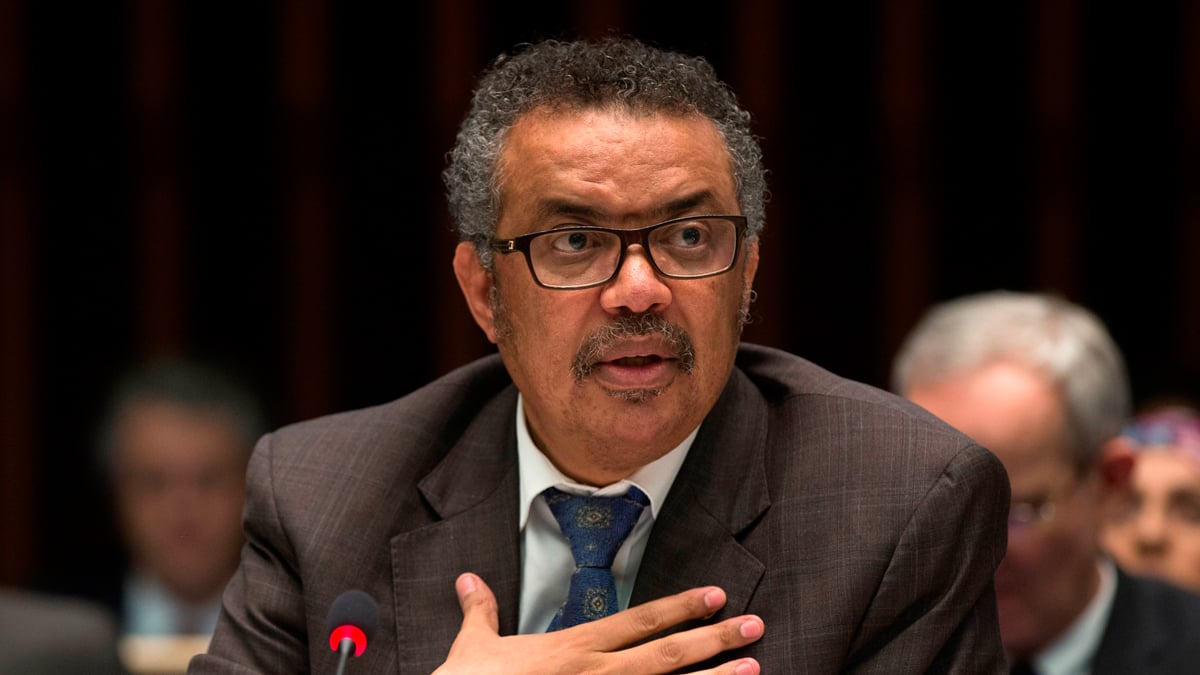Prime
World seeking shot in the arm for vaccine production

World Health Organization chief Tedros Adhanom Ghebreyesus
What you need to know:
- On Wednesday, the WTO brought together around 50 stakeholders -- including pharmaceutical giants, suppliers, governments and international institutions -- to thrash out the issue behind closed doors.
- AstraZeneca's troubles at its European plant have made headlines, while in the United States, an error at a Johnson & Johnson subcontractor saw 15 million doses go to waste.
The gap between rich and poor countries' access to Covid-19 vaccines grows ever-more glaring by the day - but nobody has yet managed to conjure up the golden solution.
While wealthy countries immunise younger sections of the population, some states are still waiting to administer their very first doses to those most vulnerable to the virus.
Ngozi Okonjo-Iweala, the new head of the World Trade Organization, has made squaring the circle her top priority.
On Wednesday, the WTO brought together around 50 stakeholders -- including pharmaceutical giants, suppliers, governments and international institutions - to thrash out the issue behind closed doors.
Okonjo-Iweala wants to identify and then steamroll the obstacles blocking an increase in vaccine production -- in order to stem a global crisis that has shredded economies and killed nearly three million people.
The lengthy talks "advanced our understanding of the challenges we face for scaling up vaccine production", she said afterwards, adding that "working together is the only way ahead".
Calls for greater vaccine-sharing to protect health workers and the most vulnerable around the world have gone largely unheeded.
Wealthy countries have bought up way more doses than are necessary to protect the main priority groups.
"There remains a shocking and expanding disparity in the global distribution of vaccines," World Health Organization chief Tedros Adhanom Ghebreyesus said Thursday.
Of the more than 835 million vaccine doses administered so far, 48 percent have been in high-income countries accounting for 16 percent of the global population, according to an AFP count.
Just 0.1 percent have been administered in the 29 lowest-income countries, home to nine percent of the world's population.
The WHO, along with the Gavi vaccine alliance and the Coalition for Epidemic Preparedness Innovations, set up the Covax programme which aims to guarantee free doses for 92 of the world's poorest territories.
But its bid to provide at least enough vaccines to cover the most vulnerable 20 percent in those countries this year has been hampered by rich nations hogging the vaccine supply.
"Covax has distributed more than 40 million doses to 110 countries, but it's nowhere near enough," said Tedros.
Challenges and obstacles
The challenges faced in boosting vaccine supply are numerous and onerous.
For a start, producing doses often involves hundreds of ingredients from several countries.
AstraZeneca's troubles at its European plant have made headlines, while in the United States, an error at a Johnson & Johnson subcontractor saw 15 million doses go to waste.
"We tend to forget the daunting task of scaling up manufacturing. Vaccine manufacturing is a complex biological process," said Thomas Cueni, head of the International Federation of Pharmaceutical Manufacturers and Associations.
Developed in record time, the dozen or so vaccines already in use around the world have already triggered an exponential increase in production, meaning raw materials are now running short.
A lack of filters has shut down one entire site, according to one participant in the WTO meeting.
In order to encourage a more open debate, the global trade body did not make public who took part.
Export bans, a shortage of qualified personnel, the absence in some countries of adequate safety and quality regulators and the lack of long-term financing were also cited as significant obstacles, according to one participant.
And of course, the elephant in the room was mentioned: intellectual property rights.
India and South Africa are leading a push at the WTO calling for a temporary waiver on IP rules to speed and scale up vaccine production.
On Wednesday, more than 170 former heads of state or government, and Nobel prize winners urged US President Joe Biden to support an IP waiver.
Signatories included former French president Francois Hollande, former British prime minister Gordon Brown and former Liberian president Ellen Johnson Sirleaf, along with US economist Joseph Stiglitz.
But opponents of the move fear it would discourage laboratories if returns on their investment are curtailed - prompting Okonjo-Iweala to seek a "third way".
What next?
For Cueni, the pharmaceutical industry is already straining the sinews and has struck more than 200 technology transfer agreements, including between competitors, to increase production.
"We are on track with this target of 10 billion doses" by the end of 2021, he said, reprising the WHO's slogan by saying: "We truly know that no one is safe until everyone is safe."
WTO director-general Okonjo-Iweala, who sees vaccine equity as a way of reviving the beleaguered global trade body, put forward a possible roadmap on Wednesday.
She proposed member states reduce trade barriers and move forward on a temporary IP waiver, while pharmaceutical groups increase production by all possible means, with transparency on contracts and prices.




